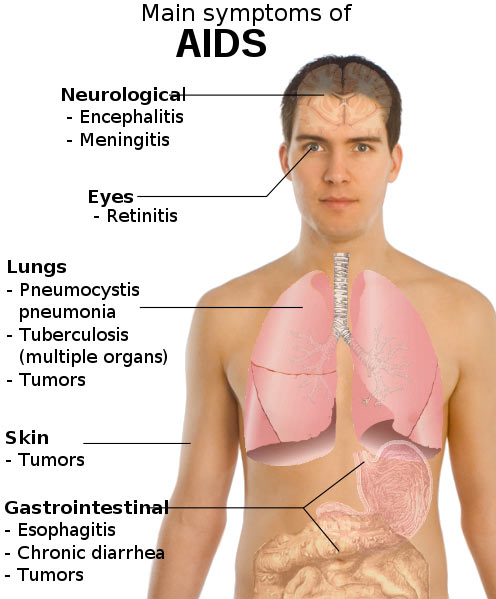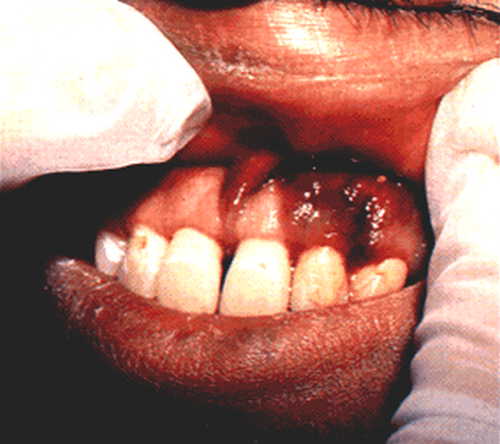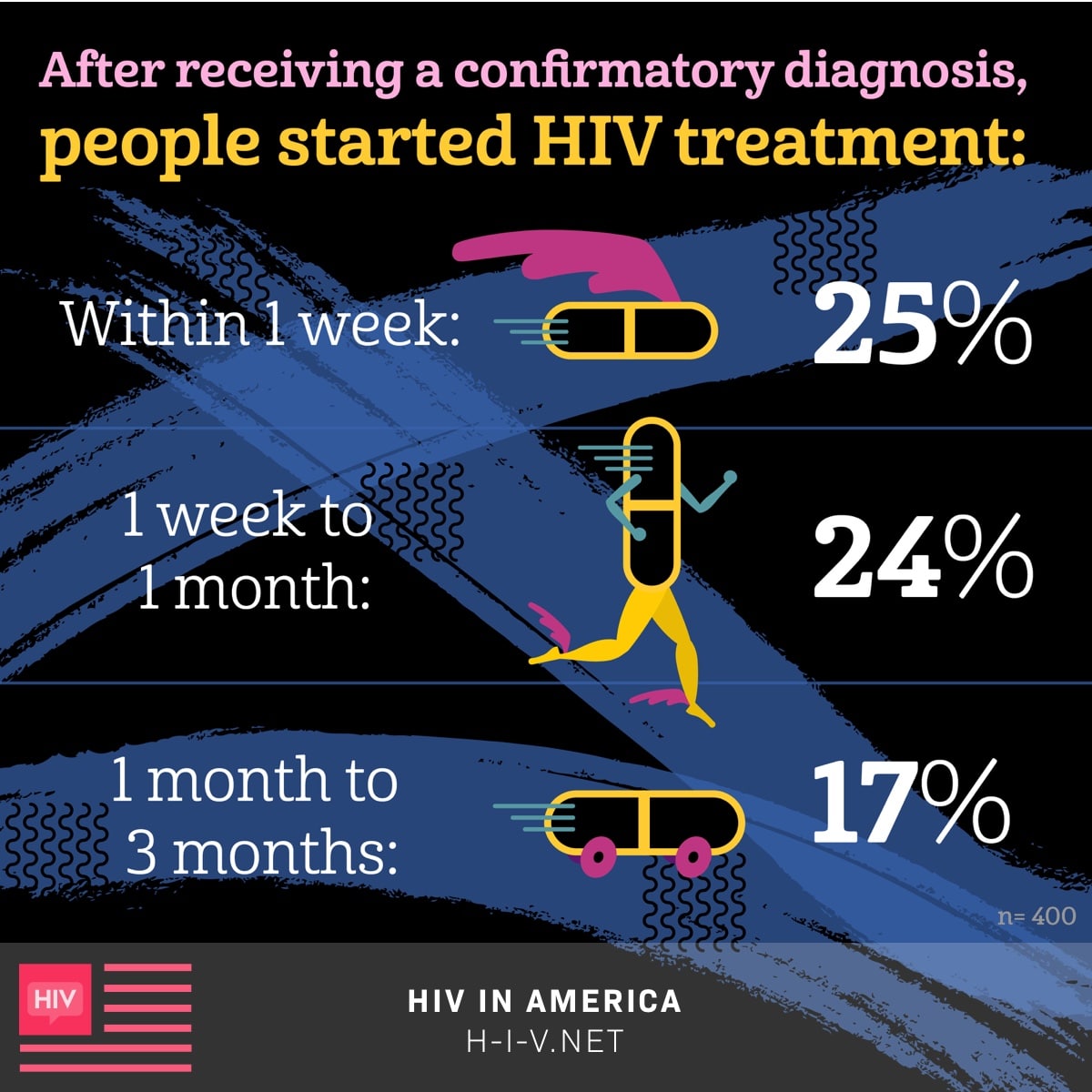Your Stomach Feels Off
A trio of gastrointestinal symptomsdiarrhea, nausea, and vomitingmay also be a marker for initial HIV infection, says Amruta Padhye, M.D., an infectious disease specialist at the University of Missouri Health Care. With rising viremia , the immune system is in a state of hyperactivation, she explains.
Bottom line? Your GI distress might not be just a stomach bug, so get it checked out if youre at risk for HIV.
*Source: Centers for Disease Control and Prevention.
How Hiv Infects The Body
HIV is a virus that can cause an HIV infection if it gets into our blood stream.
It then goes on to infect our immune system the part of our body that keeps you healthy.
It does this by entering T-helper cells so that our immune system cant find and destroy it. Then it makes copies of itself so it can go on to infect other cells.
This is called the HIV lifecycle and it is how the virus multiplies in our body.
Taking antiretroviral drugs is the only way to interrupt the HIV lifecycle and stay healthy.
Getty Images 9 You Start Losing Weight Unexpectedly
In its later stages, untreated HIV causes whats known as wasting, or loss of fat and muscle mass, because the virus causes you to lose your appetite and prevents your body from absorbing nutrients, says Horberg.
While the exact amount youll shed varies, its noticeable and often happens over a long period of time. Often your friends and loved ones will comment that youre wasting away, says Horberg. Typically, it doesnt happen in patients who have been treated well with modern medicines.
Read Also: Where Does Hiv And Aids Come From
Stage : Clinical Latency
In this stage, the virus still multiplies, but at very low levels. People in this stage may not feel sick or have any symptoms. This stage is also called chronic HIV infection.
Without HIV treatment, people can stay in this stage for 10 or 15 years, but some move through this stage faster.
If you take HIV medicine exactly as prescribed and get and keep an undetectable viral load, you can live and long and healthy life and will not transmit HIV to your HIV-negative partners through sex.
But if your viral load is detectable, you can transmit HIV during this stage, even when you have no symptoms. Itâs important to see your health care provider regularly to get your viral load checked.
Stage : The Asymptomatic Stage

Once a person has been through the acute primary infection stage and seroconversion process, they can often start to feel better. In fact, HIV may not cause any other symptoms for up to 10 or even 15 years .
However, the virus will still be active, infecting new cells and making copies of itself. HIV can still be passed on during this stage. If left untreated, over time, HIV infection will cause severe damage to the immune system.
Don’t Miss: What Percentage Of Americans Have Hiv
You’re Always Waking Up With Night Sweats
Getting damp on a muggy night without air conditioning is definitely not the same as night sweats, which result in puddles of sweat thatll make you want to change your sheets. The body is trying to release off toxins, says Horberg.
Although HIV can cause night sweats, plenty of other potential culprits do as well, including menopause, mononucleosis, and cancers like lymphoma and leukemia, says Horberg. So if youre soaking your sheets over the course of a few nights, definitely check in with your doctor.
How Can You Tell If You Have Hiv
The only way to know for sure if you have HIV is to get tested. You canât rely on symptoms to tell whether you have HIV.
Knowing your HIV status gives you powerful information so you can take steps to keep yourself and your partner healthy:
- If you test positive, you can take medicine to treat HIV. People with HIV who take HIV medicine as prescribed and get and keep an undetectable viral load can live long and healthy lives and will not transmit HIV to their HIV-negative partners through sex. An undetectable viral load is a level of HIV in the blood so low that it canât be detected in a standard lab test.
- If you test negative, you have more HIV prevention tools available today than ever before, like pre-exposure prophylaxis , medicine people at risk for HIV take to prevent getting HIV from sex or injection drug use, and post-exposure prophylaxis , HIV medicine taken within 72 hours after a possible exposure to prevent the virus from taking hold.
- If you are pregnant, you should be tested for HIV so that you can begin treatment if you’re HIV-positive. If you have HIV and take HIV medicine as prescribed throughout your pregnancy and childbirth and give HIV medicine to your baby for 4 to 6 weeks after giving birth, your risk of transmitting HIV to your baby can be less than 1%. HIV medicine will protect your own health as well.
Use the HIV Services Locator to find an HIV testing site near you.
Also Check: Can Hiv Make You Gain Weight
Hiv Rashes Caused By Medication
Drugs that treat HIV and related infections can trigger rashes. These often go away several days or weeks after you stop taking the drug. Talk with your doctor before stopping any medication.
If you have a rash along with fever, fatigue, headache, muscle pains, upset stomach, vomiting, and belly pain, you might have a âhypersensitivity reaction,â which can happen with several HIV medications, including:
- Abacavir and medications that have abacavir in them
Get medical help right away if you have those symptoms or if you have:
- Painful red or purplish rash
- Blisters that spread on your skin and around your mouth, nose, and eyes
These could be signs of Stevens-Johnson syndrome, a severe form of hypersensitivity reaction. Itâs rare but can be life-threatening.
You May Like:
Symptoms Of The Early Stages Of Hiv
This article is also available in Simplified Chinese and Thai.
Symptoms of HIV can vary between individuals however the first signs of infection generally appear within the first 1-2 months. Many, but not all, people will experience severe flu-like symptoms which is your bodys natural response to the virus. This is called the seroconversion period.
Its during this time that its crucial to identify if HIV is the cause, as your viral load is very high which greatly increases the risk of passing it on. And the only way to know for sure is by getting tested.
You May Like: How Soon Can I Get Tested For Hiv
How Do I Take Care Of Myself With Hiv
The best way to take care of yourself while living with HIV is to follow your treatment plan.
- Make sure to take your medications as prescribed and on time.
- Show up to all appointments so your healthcare team can monitor how youre feeling and know if theres a need to adjust your treatment.
- Follow your healthcare providers recommendations on how to avoid additional illnesses.
What Do Contractions Feel Like
What Do Braxton Hicks Contractions Feel Like? Braxton Hicks contractions can feel like very mild cramps or more intense pains. The pain of Braxton Hicks is usually felt at the front of the abdomen, and the intensity of these contractions may ebb and flow for example, they could feel weaker, then stronger, then weaker again.
Recommended Reading: Does Nba Youngboy Have Herpies
You May Like: What Does An Hiv Blood Test Reveal
Can Medications Prevent Hiv
There are medications that can help prevent HIV in people who have been exposed or are at high risk for exposure. These include pre-exposure prophylaxis and post-exposure prophylaxis .
Pre-exposure prophylaxis
PrEP is a pill you take every day if you dont have HIV but are at high risk of getting infected.
- You have a sexual partner with HIV.
- You havent consistently used a condom.
- In the past six months, youve been diagnosed with a sexually transmitted disease .
PrEP is also recommended if you dont have HIV, you inject drugs and at least one of the following is true:
- You inject drugs with a partner who has HIV.
- You share needles or other equipment to inject drugs.
PrEP is not a replacement for other preventative measures. You should still use condoms and avoid sharing needles to inject drugs while taking PrEP.
Post-exposure prophylaxis
PEP uses HIV medicines to try to prevent an HIV infection soon after you are exposed. PEP is for those who dont have HIV or dont know if they have HIV and think theyve been exposed through consensual sex, sexual assault, shared needles , or work.
You must start PEP within 72 hours of exposure and take it every day for 28 days. PEP is only for emergency use and does not replace other precautions, like condom use.
Need Help Paying For Your Clinic Visits And Lab Tests

- You can get them at HRSA-funded Health Centers, where the sliding scale fees are based on your ability to pay. There are more than 12,000 health centers nationwide.
- Some state PrEP assistance programsExit Disclaimer also cover clinical visits and labs.
If you don’t have prescription drug insurance, you may be eligible for Ready, Set, PrEPExit Disclaimer, a national program that makes PrEP oral medications available at no cost.
To qualify for Ready, Set, PrEP, you must test negative for HIV, have a valid prescription for the medication, and not have prescription drug coverage. All medications are fully covered for qualifying participants however, the costs of necessary clinic visits and lab tests may vary depending on a personâs income.
To find out if you qualify, visit GetYourPrEP.comExit Disclaimer or call toll-free 855-447-8410.
Don’t Miss: How Does Hsv 2 Increase Risk Of Hiv
Symptom : Nausea Vomiting And Diarrhoea
Many people experience digestive system problems as a symptom of the early stages of HIV. However, nausea, vomiting and diarrhoea can also appear in later stages of infection, usually as the result of an opportunistic infection.
It is important to stay hydrated. Diarrhoea that is unremitting and not responding to usual therapy might be an indication of HIV, and it would be best to seek the advice of a doctor to help determine its cause.
How Long Does It Take To Show Symptoms Of Hiv
Some people notice flu-like symptoms 1-4 weeks after they’re first infected. They often only last a week or two. This stage is called acute or primary HIV infection.
Then, you may go for 10 years or more without further symptoms. This is called asymptomatic HIV infection. Even though you feel fine, the virus is still active in your body. And you can still give it to someone else.
Once HIV has seriously harmed your immune system, you’re at risk for diseases that a healthy body could fight off. In this stage, symptomatic HIV infection, you start to notice problems caused by those “opportunistic” infections.
Recommended Reading: Hearing Aids In Ear Canal
Associations Between Symptom Clusters
There was a strong correlation between Symptom Cluster 1 and Symptom Cluster 2 . Fatigue and muscle pain/joint aches loaded on both factors and were reported among the most prevalent and most bothersome symptoms. The high prevalence of fatigue and muscle pain/joint aches persisted in subjects with both clusters with HIV-1 viremia or aviremia . There were no statistical differences in clusters based on gender or race.
In symptom clusters in patients with HIV-1 viral loads > 500 copies/mL, symptom clusters did not have any overlap. The first cluster accounted for 42% of the variability in reported symptoms, with rash added to the symptoms listed in comparison to the full population model. The second cluster loaded symptoms with an inverse correlation between weight variables and appetite, and accounted for 8% of the variability of symptoms reported .
Your Throat Is So Sore
An inflammatory response to a serious viral infection can also cause your throat to become inflamed, making it hard to swallow. But unlike strep, your doctor wont spot patches of white, just redness and inflammation like youd get with a cold.
Lots of viruses affect your throat, says Horberg but if youre concerned about HIV, its best to see a doctor about this one.
Read Also: What Is The Hiv Aids Rate In The United States
Also Check: Can Hiv Be Transmitted Through Semen
Hiv And Knee Pain: Whats The Connection
HIV is a virus that attacks the bodys immune system, making the person infected susceptible to other infections and illnesses, which can cause a wide range of symptoms. One of the possible symptoms of HIV is knee pain. There is no definitive answer as to whether or not HIV directly causes knee pain. However, it is possible that the virus can lead to inflammation of the joints, which can cause pain and stiffness. Additionally, HIV can weaken the immune system, making the person more susceptible to developing other infections or illnesses that can cause knee pain. If you are experiencing knee pain and think it may be related to HIV, it is important to see a doctor so that the cause can be properly diagnosed and treated.
Arthritis, joint pain, and muscle pain are common symptoms of HIV infection, as are weakness and fatigue. HIV patients may also suffer from extra-articular manifestations such as uveitis .
Also Check: Best Mattress For Back Pain Stomach Sleeper
Increased Cervical Cancer Risk
Women with HIV are at higher risk for cervical cancer, a cancer that begins in the cervix. This is because human papillomavirus is the most common cause of the cancer, and women with HIV are more likely to have the cancer-causing types of HPV .
Because of this increased risk, it is recommended that women with HIV discuss the ideal Pap smear screening schedule with a healthcare provider. For example, some guidance recommends having two pap smears in the first year after diagnosis with one Pap smear done every year after if the first two screenings were normal .
Read Also: How Much Is Hiv Medication Without Insurance
Who Is At Risk For Hiv Infection
Anyone can get HIV, but certain groups have a higher risk of getting it:
- People who have another sexually transmitted disease . Having an STD can increase your risk of getting or spreading HIV.
- People who inject drugs with shared needles.
- Gay and bisexual men.
- Black/African Americans and Hispanic/Latino Americans. They make up a higher proportion of new HIV diagnoses and people with HIV, compared to other races and ethnicities.
- People who engage in risky sexual behaviors, such as not using condoms.
Factors such as stigma, discrimination, income, education, and geographic region can also affect people’s risk for HIV.
Early Symptoms In Primary Hiv

The first noticeable stage is primary HIV infection. This stage is also called acute retroviral syndrome , or acute HIV infection.
It usually causes flu-like symptoms, so its possible for someone in this stage to think they have severe flu or another viral illness rather than HIV. Fever is the most common symptom.
Other symptoms include:
Also Check: Does Urgent Care Test For Hiv
How To Manage Hiv Symptoms
Antiretroviral medications are the first-line treatment for human immunodeficiency virus . Patients should be compliant with the medications to reduce the amount of virus in the body.
The various symptoms and their treatments are as follows
- Weight loss: In addition to the HIV medications , patients should eat a well-balanced diet and high-protein supplements and perform exercises to build muscle mass. The physician may prescribe medications such as Megace and to treat wasting syndrome commonly seen in HIV patients.
- Skin problems: Skin infections or dry itchy skin are usually treated with antifungal or antibacterial cream. Oral medicines may also be required.
- Herpes : Shingles can cause a painful, blisteringrash. Antiviral medications, pain relievers and calamine lotions are mainly used to treat rashes.
- Fever: Taking nonsteroidal anti-inflammatory drugs and applying cold compresses may bring down the temperature.
- Nagging cough: Dry cough can be due to an infection known as pneumocystis pneumonia. The physician may prescribe antibiotics to treat the infection. Medicines to thin the mucus may also help.
- Diarrhea: Doctors may prescribe antidiarrheals to control diarrhea. Patients need to drink plenty of fluids to stay hydrated.
What Does Ecstasy Feel Like
How does pure Molly make you feel? What is Molly like?. MDMA, Molly or Ecstasy, if pure and taken in a positive envrionment with a positive mindset, can make users feel like the world is perfect, with extreme euphoria, greatly enhanced touch and bodily sensations, and enhanced empathy and enhanced ability to have deeper and more understanding conversations with other people.
Also Check: What Is Viral Load Test For Hiv
How To Manage The Pain
Pain that comes from HIV can be hard to treat. Many common pain relievers donât mix well with HIV treatments. They also can bring their own side effects.
Hereâs what you can do:
Talk to your doctor about something called cognitive behavioral therapy. The idea behind it is that by learning to lessen or change negative thoughts or behavior linked to your pain, you can change how it affects you. Talk with your doctor about it.
Try yoga. Itâs a great way to ease headaches, arthritis, and sore muscles.
Stay active. For the best pain relief, combine cardio, weight training, and stretching on most days. Talk with your doctor first to find out which exercises would be best for you.
Consider acupuncture. This ancient practice involves putting very thin needles into your body at specific points. It can help ease many types of pain, including low back pain, nerve pain, fibro, shingles, headaches, and cramps.
Show Sources